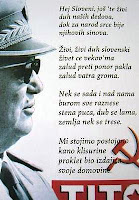The National Anthem of Netherlands
 The Dutch national anthem is one of the oldest anthems in existence, the melody was known from before 1572 as a French Hugenot melody titled "Charles", and the song first appeared in 1626 in a collection of songs assembled by Adriaan Valerius. Philips van Marnix van Sint Aldegonde is widely credited as the author, but as this is very much in dispute, the author is at this point basically unknown. It was not approved as the official national anthem until 1932.
The Dutch national anthem is one of the oldest anthems in existence, the melody was known from before 1572 as a French Hugenot melody titled "Charles", and the song first appeared in 1626 in a collection of songs assembled by Adriaan Valerius. Philips van Marnix van Sint Aldegonde is widely credited as the author, but as this is very much in dispute, the author is at this point basically unknown. It was not approved as the official national anthem until 1932."The Wilhelmus" as the anthem is known, has 15 eight-line verses (the first and sixth verses make up the official anthem). Based on older songs, the Wilhelmus takes the form of an acrostic on the name of William of Orange, the leader of the Dutch revolt against Philip II of Spain.
The song's style resembles that of the work of the Rederijkers ("rhetoricians"), sixteenth-century companies of poets. For example, the first letters of the 15 verses spell the name "Willem van Nassov". The text is also thematically symmetrical, in that verses one and 15 resemble on another in meaning, as do verses two and 14, three and 13, etc., until they converge in the eighth verse, the heart of the song: "Oh David, thou soughtest shelter/From King Saul's tyranny". The words of the song also highly resemble the poems in the biblical book of Psalms.
Another fact about the anthem that is often in dispute is the use of the word "Duitsen" in the second line of the first verse. Often translated as "German",
 William's birthplace indeed lies in modern-day Germany, however, Germany as a nation would not exist for another 300 years (the area still being known as the "Holy Roman Empire"). Only in modern Dutch has "Duits" come to mean "German" in all uses. Others have interpreted the word to mean "of the people", which of course makes it more inclusive of the Dutch people. This site prefers "Germanic" as the translation; the original lyrics read "van Duytschen bloet", "Duytschen" referring not to Germany (as it has been established that there was no such nation at the time), but to the lowlands area, which includes the modern-day Netherlands and certain areas of Germany, including where William of Orange was born; the word therefore highlighted William's local origins. "Germanic" may be the best modern word to cover the original intent and area inferred.
William's birthplace indeed lies in modern-day Germany, however, Germany as a nation would not exist for another 300 years (the area still being known as the "Holy Roman Empire"). Only in modern Dutch has "Duits" come to mean "German" in all uses. Others have interpreted the word to mean "of the people", which of course makes it more inclusive of the Dutch people. This site prefers "Germanic" as the translation; the original lyrics read "van Duytschen bloet", "Duytschen" referring not to Germany (as it has been established that there was no such nation at the time), but to the lowlands area, which includes the modern-day Netherlands and certain areas of Germany, including where William of Orange was born; the word therefore highlighted William's local origins. "Germanic" may be the best modern word to cover the original intent and area inferred.





